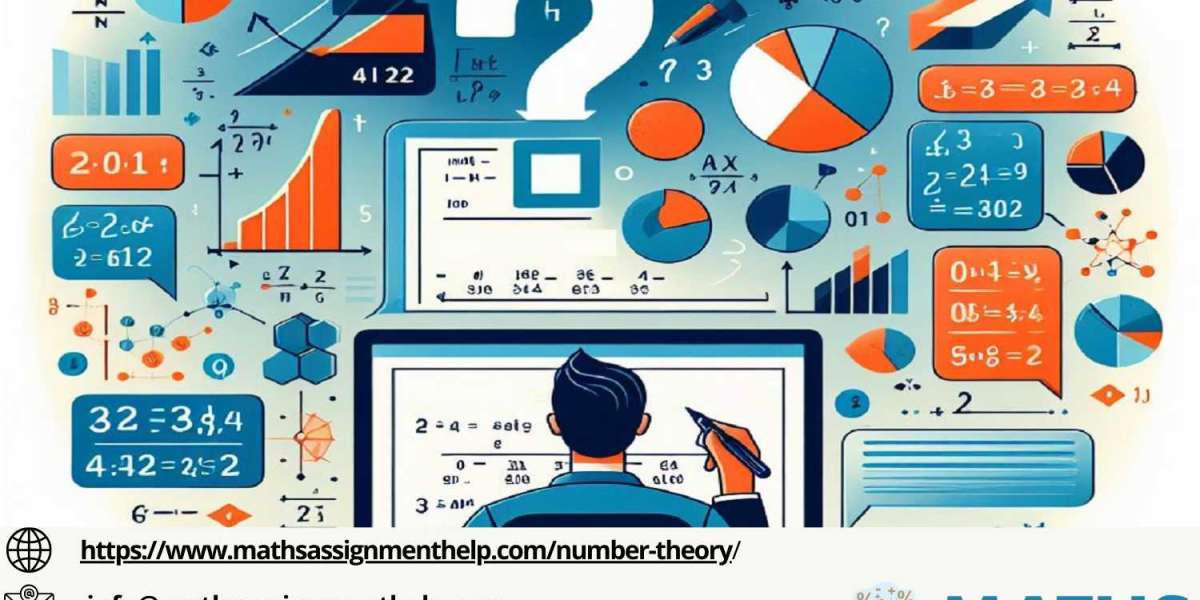Number Theory Assignment Help has become increasingly sought after as students delve deeper into the intricate world of numbers and their properties. In this blog, we'll unravel three long master-level questions in Number Theory, providing comprehensive theoretical answers that offer valuable insights into this fascinating branch of mathematics.
Question 1:
Discuss the significance of prime numbers in cryptography and their role in ensuring secure communication channels.
Answer:
Prime numbers serve as the bedrock of modern cryptography, playing a pivotal role in ensuring the security of digital communication. In cryptographic protocols like RSA (Rivest-Shamir-Adleman), prime numbers are utilized in the generation of public and private keys. The security of RSA encryption relies on the difficulty of factoring large composite numbers into their prime factors. Prime numbers provide a secure foundation for encryption algorithms, enabling the creation of keys that are incredibly challenging to decipher without the proper authorization.
Question 2:
Explain the concept of modular arithmetic and its applications in real-world scenarios.
Answer:
Modular arithmetic is a branch of number theory that deals with numbers "wrapping around" after reaching a certain value, known as the modulus. It finds widespread applications in various real-world scenarios, including computer science, cryptography, and scheduling algorithms. In computer science, modular arithmetic is utilized in hashing functions and addressing schemes, optimizing memory usage and computational efficiency. Moreover, in cryptography, modular arithmetic forms the basis of encryption and decryption algorithms, ensuring the security and integrity of sensitive data transmitted over digital networks.
Question 3:
Explore the role of Diophantine equations in solving real-world problems and their historical significance in mathematical development.
Answer:
Diophantine equations, named after the ancient Greek mathematician Diophantus, are polynomial equations with integer solutions. These equations have profound implications in solving real-world problems across various disciplines, including physics, engineering, and cryptography. The study of Diophantine equations provides valuable insights into the properties of integers and the structure of mathematical systems. Historically, Diophantine equations have been instrumental in advancing mathematical knowledge, leading to groundbreaking discoveries such as Fermat's Last Theorem, which remained unsolved for centuries before being proven by Andrew Wiles in 1994.
Conclusion:
In conclusion, mastering the concepts of Number Theory opens doors to a realm of mathematical exploration and problem-solving. From the fundamental properties of prime numbers to the intricate solutions of Diophantine equations, each concept unveils a rich tapestry of theoretical insights and practical applications. By delving into these master-level questions and their theoretical answers, students gain a deeper appreciation for the elegance and complexity of Number Theory, paving the way for academic excellence and intellectual growth.

![[4K-ONLINE] Komplett Film ↝ Godzilla x Kong: The New Empire Stream Deutsch <br>Godzilla x Kong: The New Empire](https://adidassoccershoesfans.com/upload/photos/2024/05/LbElfvXZqSOzLK4vht3x_31_51e15617d18f2c8478f7b798640b9274_image.jpg)
